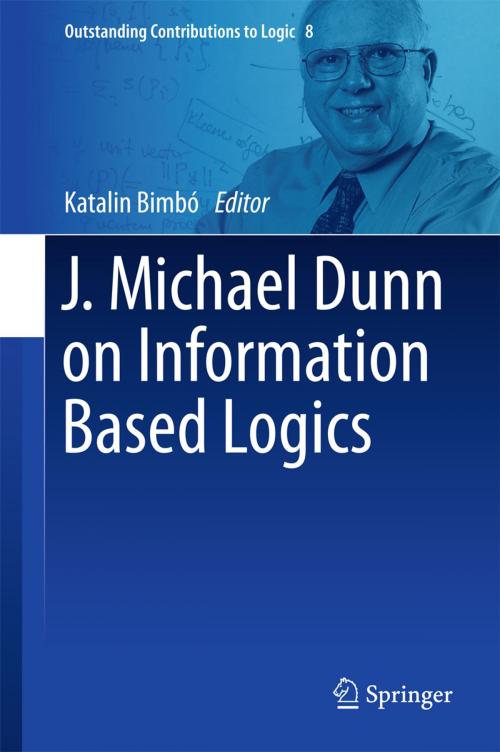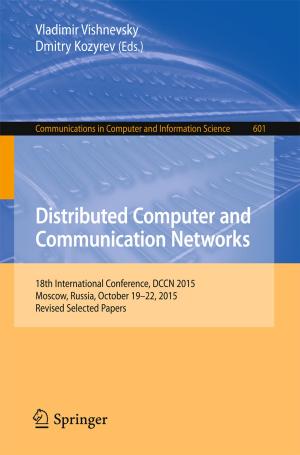J. Michael Dunn on Information Based Logics
Nonfiction, Science & Nature, Mathematics, Logic, Religion & Spirituality, Philosophy| Author: | ISBN: | 9783319293004 | |
| Publisher: | Springer International Publishing | Publication: | April 2, 2016 |
| Imprint: | Springer | Language: | English |
| Author: | |
| ISBN: | 9783319293004 |
| Publisher: | Springer International Publishing |
| Publication: | April 2, 2016 |
| Imprint: | Springer |
| Language: | English |
This book celebrates and expands on J. Michael Dunn’s work on informational interpretations of logic. Dunn, in his Ph.D. thesis (1966), introduced a semantics for first-degree entailments utilizing the idea that a sentence can provide positive or negative information about a topic, possibly supplying both or neither. He later published a related interpretation of the logic R-mingle, which turned out to be one of the first relational semantics for a relevance logic. An incompatibility relation between information states lends itself to a definition of negation and it has figured into Dunn's comprehensive investigations into representations of various negations. The informational view of semantics is also a prominent theme in Dunn’s research on other logics, such as quantum logic and linear logic, and led to the encompassing theory of generalized Galois logics (or "gaggles"). Dunn’s latest work addresses informational interpretations of the ternary accessibility relation and the very nature of information.
The book opens with Dunn’s autobiography, followed by a list of his publications. It then presents a series of papers written by respected logicians working on different aspects of information-based logics. The topics covered include the logic R-mingle, which was introduced by Dunn, and its applications in mathematical reasoning as well as its importance in obtaining results for other relevance logics. There are also interpretations of the accessibility relation in the semantics of relevance and other non-classical logics using different notions of information. It also presents a collection of papers that develop semantics for various logics, including certain modal and many-valued logics.
The publication of this book is well timed, since we are living in an "information age.” Providing new technical findings, intellectual history and careful expositions of intriguing ideas, it appeals to a wide audience of scholars and researchers.
This book celebrates and expands on J. Michael Dunn’s work on informational interpretations of logic. Dunn, in his Ph.D. thesis (1966), introduced a semantics for first-degree entailments utilizing the idea that a sentence can provide positive or negative information about a topic, possibly supplying both or neither. He later published a related interpretation of the logic R-mingle, which turned out to be one of the first relational semantics for a relevance logic. An incompatibility relation between information states lends itself to a definition of negation and it has figured into Dunn's comprehensive investigations into representations of various negations. The informational view of semantics is also a prominent theme in Dunn’s research on other logics, such as quantum logic and linear logic, and led to the encompassing theory of generalized Galois logics (or "gaggles"). Dunn’s latest work addresses informational interpretations of the ternary accessibility relation and the very nature of information.
The book opens with Dunn’s autobiography, followed by a list of his publications. It then presents a series of papers written by respected logicians working on different aspects of information-based logics. The topics covered include the logic R-mingle, which was introduced by Dunn, and its applications in mathematical reasoning as well as its importance in obtaining results for other relevance logics. There are also interpretations of the accessibility relation in the semantics of relevance and other non-classical logics using different notions of information. It also presents a collection of papers that develop semantics for various logics, including certain modal and many-valued logics.
The publication of this book is well timed, since we are living in an "information age.” Providing new technical findings, intellectual history and careful expositions of intriguing ideas, it appeals to a wide audience of scholars and researchers.















